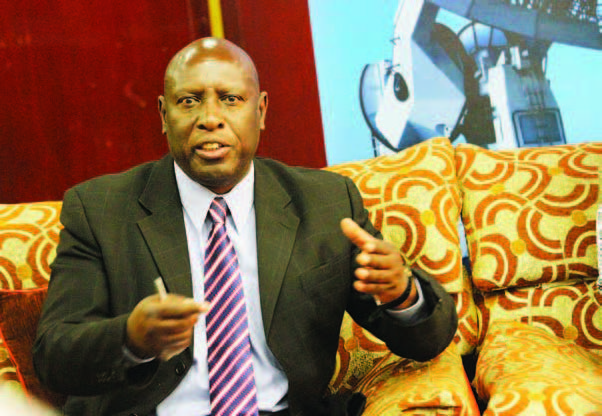
ZESA Holdings should restructure to contain costs and match the reduced levels of electricity generation in the country, analysts have said.
MTHANDAZO NYONI
Such a move would not necessitate the suggested heavy electricity tariffs, thereby bringing relief to the already struggling industry. Zesa subsidiaries have proposed a 49% tariff hike, from 9,86 cents to 14,69 cents per kilowatt hour.

The power utility says the hike is cost reflective and necessary to augment emergency power imports.
Zesa has started to import 300MW from South Africa’s Eskom to augment local generation.
Zimbabwe Power Company (ZPC) is proposing a 22% increase in power tariffs from 5,06 cents per kilowatt hour to 6,64 cents per kilowatt hour on sale to the Zesa distribution subsidiary, Zimbabwe Electricity Transmission and Distribution Centre (ZETDC).
ZETDC is in turn proposing to sell the power to consumers at 14,69 cents per kilowatt hour from 9,86 cents, an increase of 49%.
- Chamisa under fire over US$120K donation
- Mavhunga puts DeMbare into Chibuku quarterfinals
- Pension funds bet on Cabora Bassa oilfields
- Councils defy govt fire tender directive
Keep Reading
The proposed tariff hike comes at a time when the economy has been working on reducing the cost of doing business to lure foreign investments.
Stakeholders said that Zesa should restructure and focus more on public private partnerships in power generation and revenue generation as a more lucrative and sustainable alternative to the punitive increases.
Affirmative Action Group Matabeleland chapter president Reginald Shoko said Zesa needed to put its house in order first before “recklessly and negligently partaking in the process of tariff increase as a measure to increase revenue”.
“This is irresponsible and unacceptable. We propose that a comprehensive internal audit be carried out before any such recommendation is considered,” Shoko said.
He said a recent study done by industry and local technocrats revealed that the cost of power was not only a major cost driver in business, but the tariffs in Zimbabwe were among the highest in the region.
In a joint statement last week, the Confederation of Zimbabwe Industries, Chamber of Mines of Zimbabwe, Commercial Farmers’ Union, Zimbabwe Farmers’ Union and the Zimbabwe Commercial Farmers’ Union said the proposed hike would suffocate their members.
“Zesa group needs to be restructured at all levels for cost containment and to match the reduced levels of electricity generation and current economy,” the bodies said.
“At this stage, the economy of Zimbabwe cannot have cost increases in any of the inputs.
“Any increase in tariffs will only serve to reverse all the progress by government and private sector towards addressing competitiveness and productivity of the economy.”
Economic analyst John Robertson said the power utility needed more money, but higher costs would prevent the investment needed in better machines, especially if the costs were for electricity that is often switched off.
“Investors will decide on improvements only if services are reliable. Zesa provides very unreliable services,” Robertson said.
“If they want to charge more, the buyers will have to be able to earn more from higher efficiency all round, including Zesa.
“Higher costs without improvement in efficiency will certainly lead to more factories closing.”
He said Zimbabwe needed to repeal all the regulations that discouraged investors and “it needs to become more trustworthy as a business partner so that it can be trusted to repay debts”
“It has to run its existing power stations more efficiently and borrow money to build new power stations that will further encourage investors,” Robertson said.
“We need more employment. Investors create employment. The investors need nickel, ferrochrome, gold, platinum, tobacco and cotton. We need jobs.
“We need their money, their knowledge and their confidence so that they will create jobs.”
Robertson said anything produced more efficiently would cost less, including electricity.
“We all need to work for lower costs and higher efficiency so that Zimbabwe can recover its competitiveness and stop importing everything it needs,” he said.
Energy and Power Development minister Samuel Undenge recently gave thumbs up to the proposed tariff increase, saying it was long overdue.
The statement by Undenge, Shoko said, showed that consultations were being made simply for adherence to the dictates of procedure and not for an inclusive and transparent process.
Last year, ZPC awarded tenders to three companies to construct 100MW solar power stations. Intratrek Zimbabwe and its Chinese partners Chint Electric now boast of a feasibility study which has been approved by Chinese funders.
The viability studies of two other sites, Munyati and Insukamini,which were contracted to Chinese companies ZTE and Metallurgical 17, are still to be produced.
The introduction of a prepaid electricity supply system, coupled with a debt remittance system that is usage-based and allocates up to 40% of prepaid payments to arrears, has created a steady and reliable revenue generation regime.
Analysts say the prepaid system introduced an influx of otherwise uncollectable revenue arrears, positively influencing the financial standing of Zesa by design.
Shoko said Zesa had continued to act in contempt of a court order obtained by Competitions and Tariffs Commission which sought for cost-based tariff setting, as opposed to the more common thumb-suck method.











